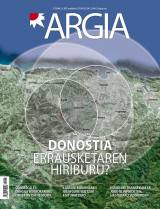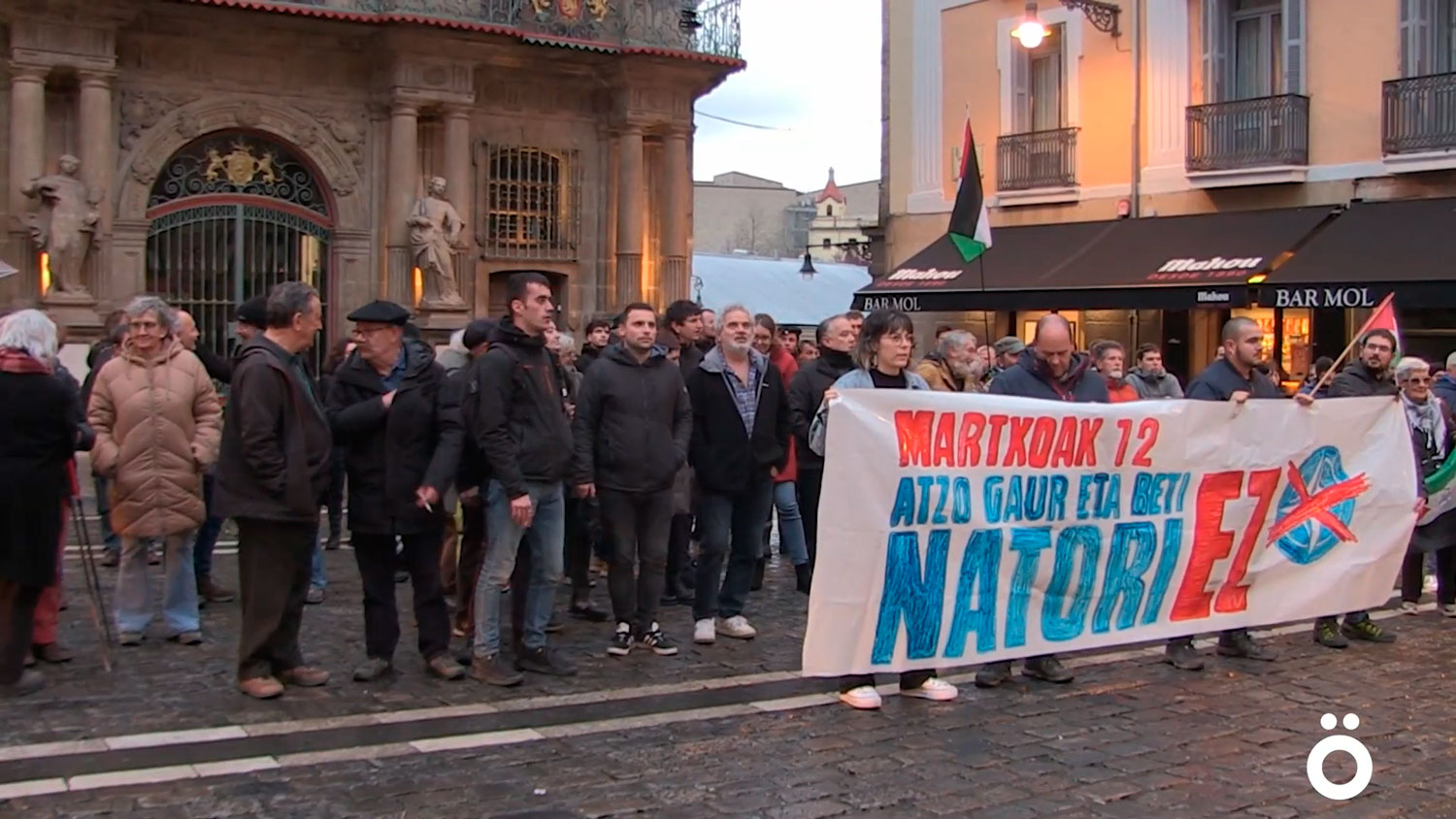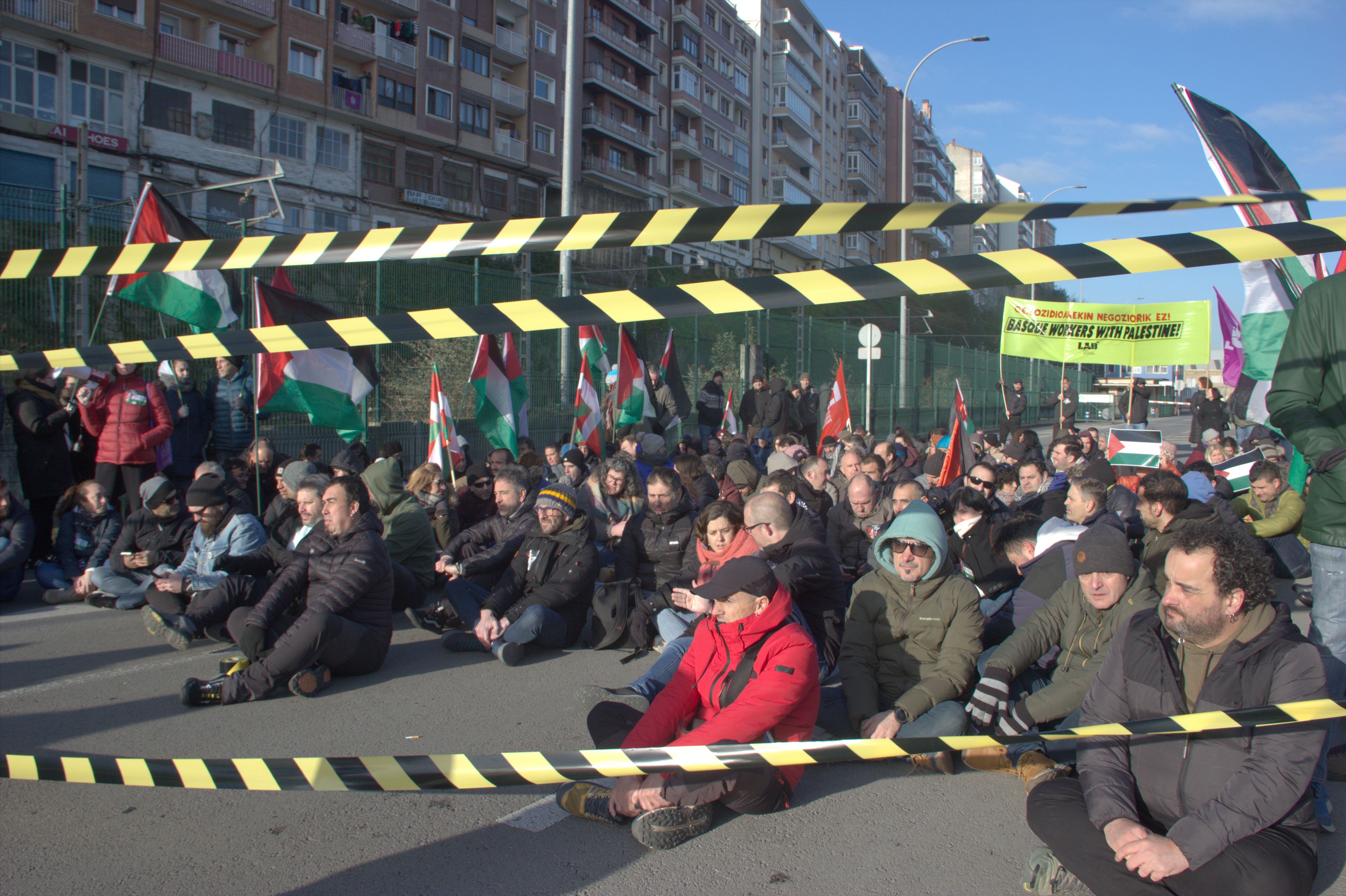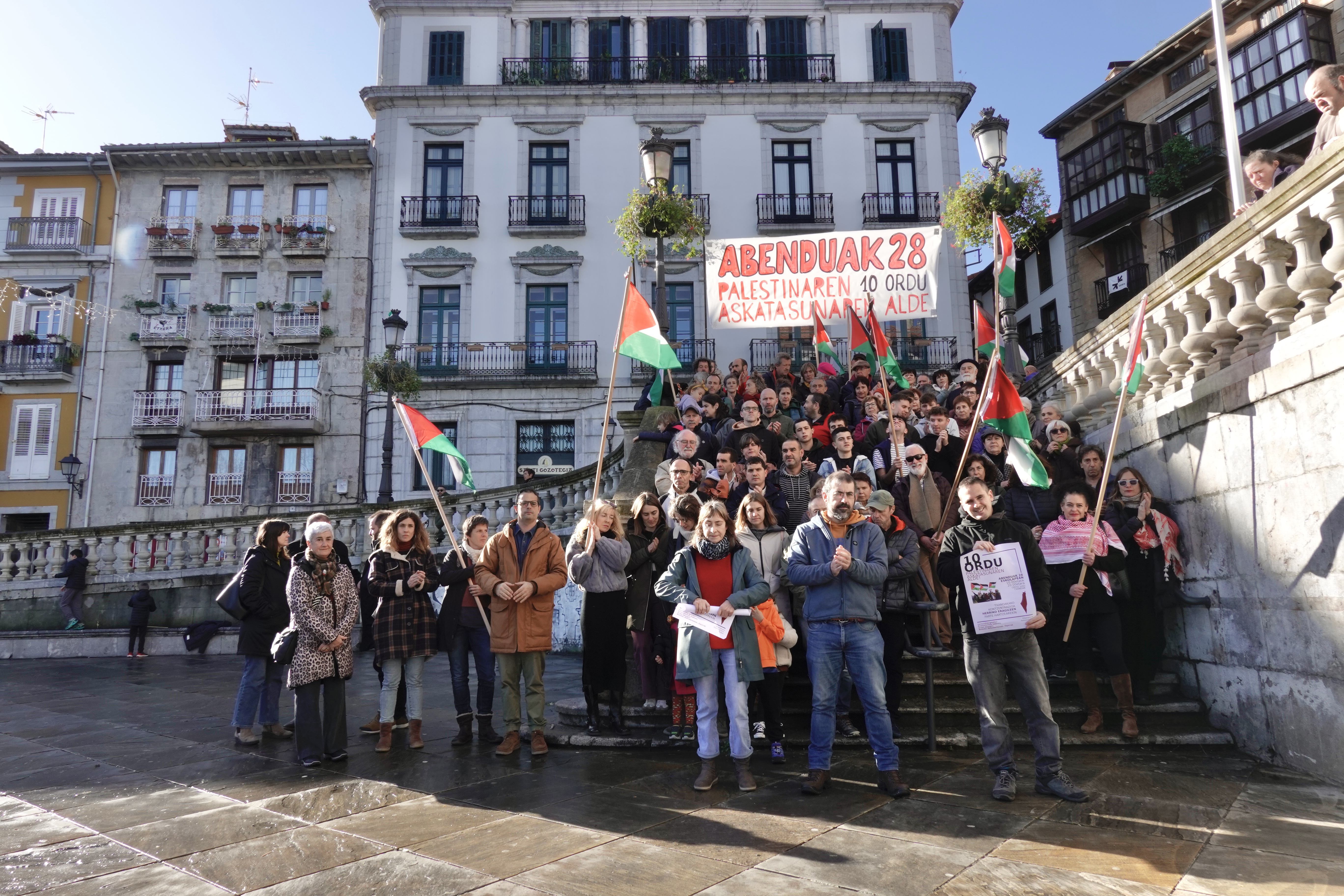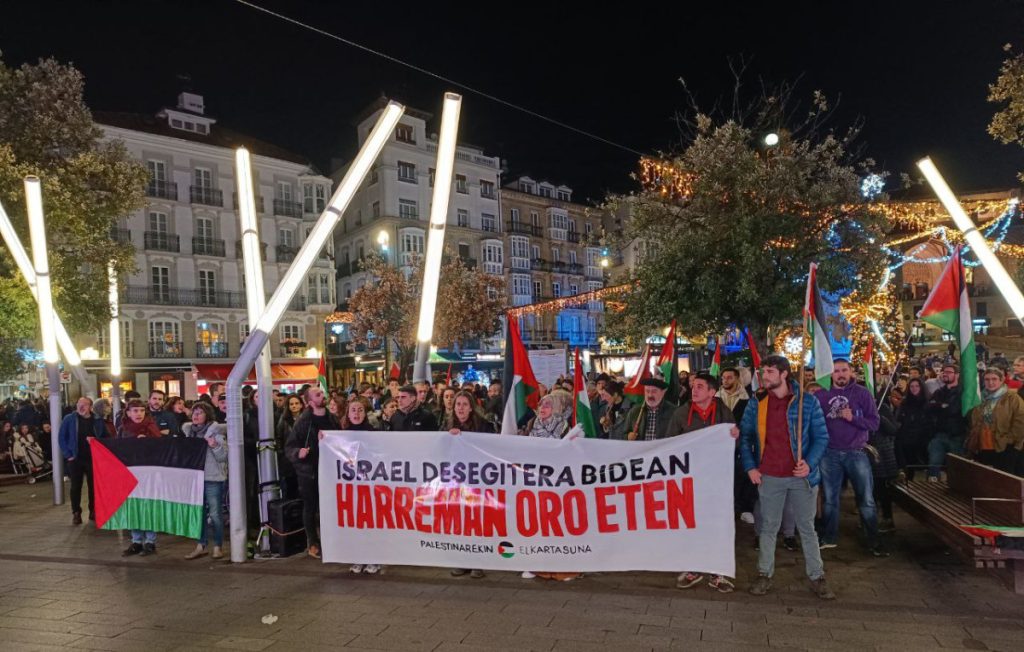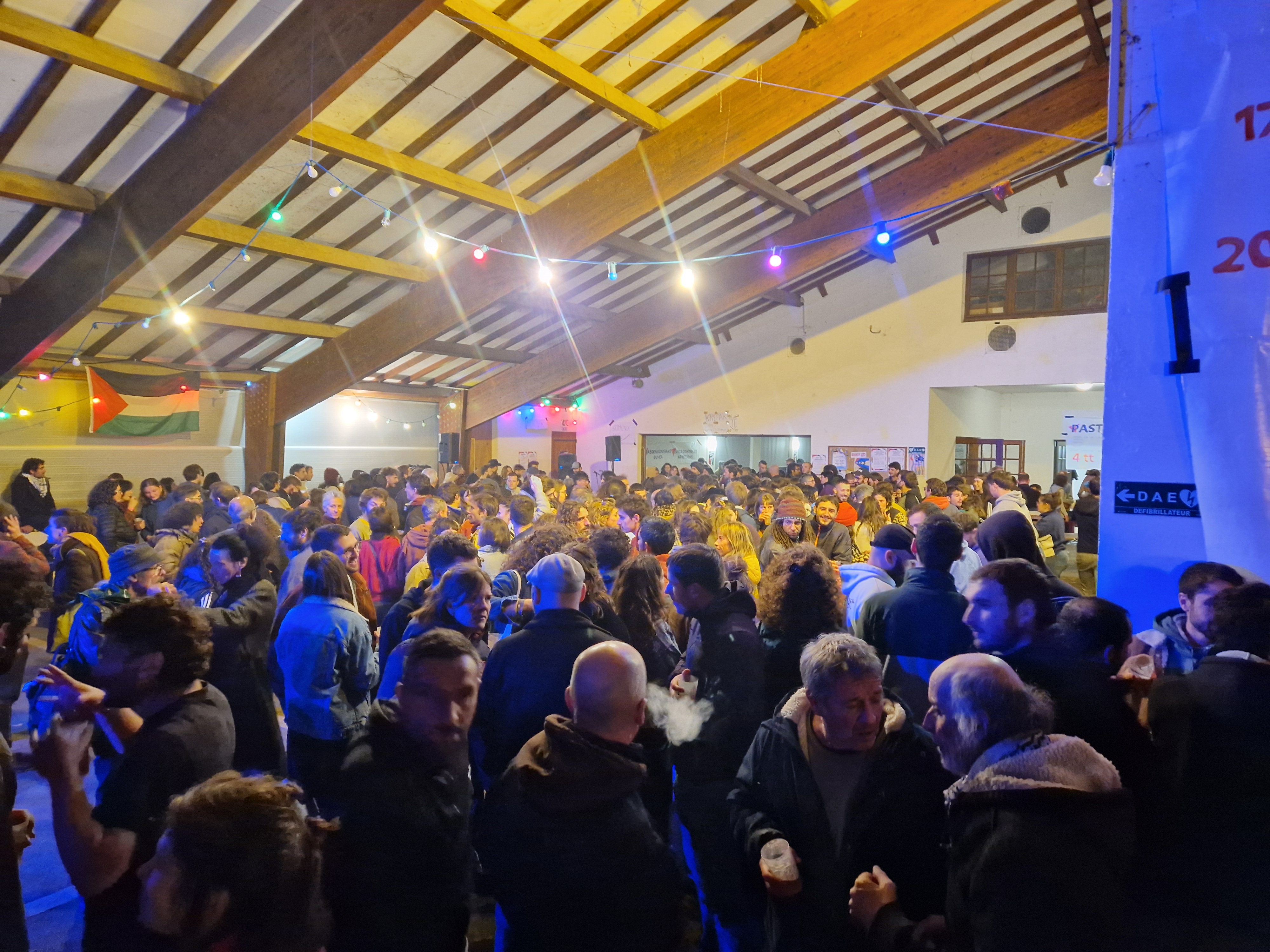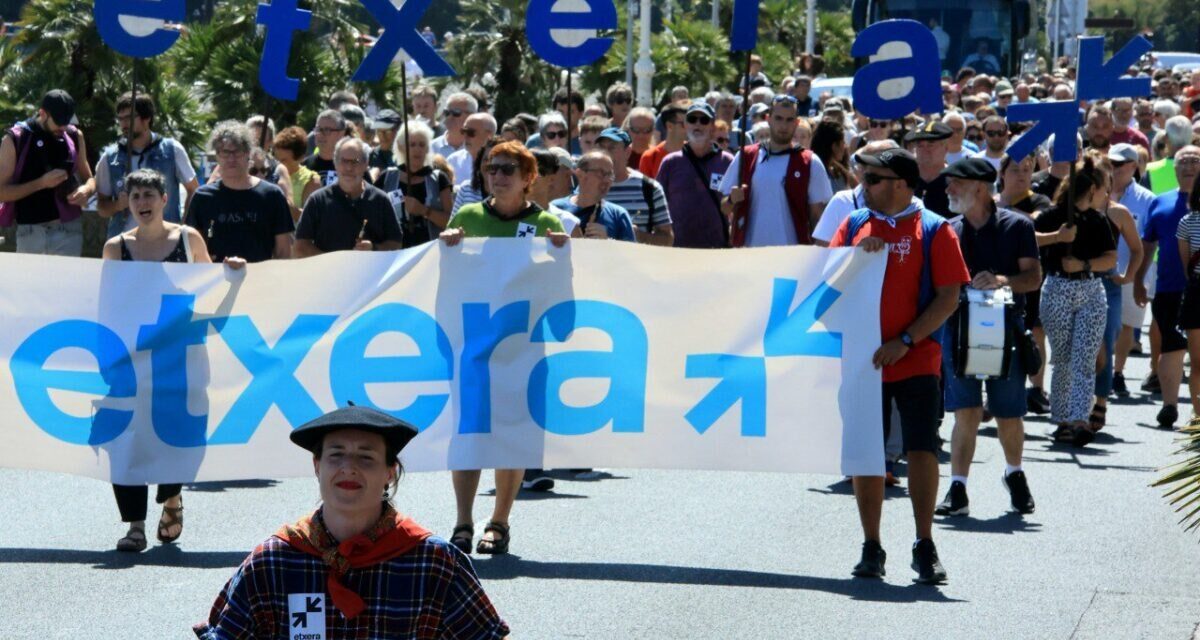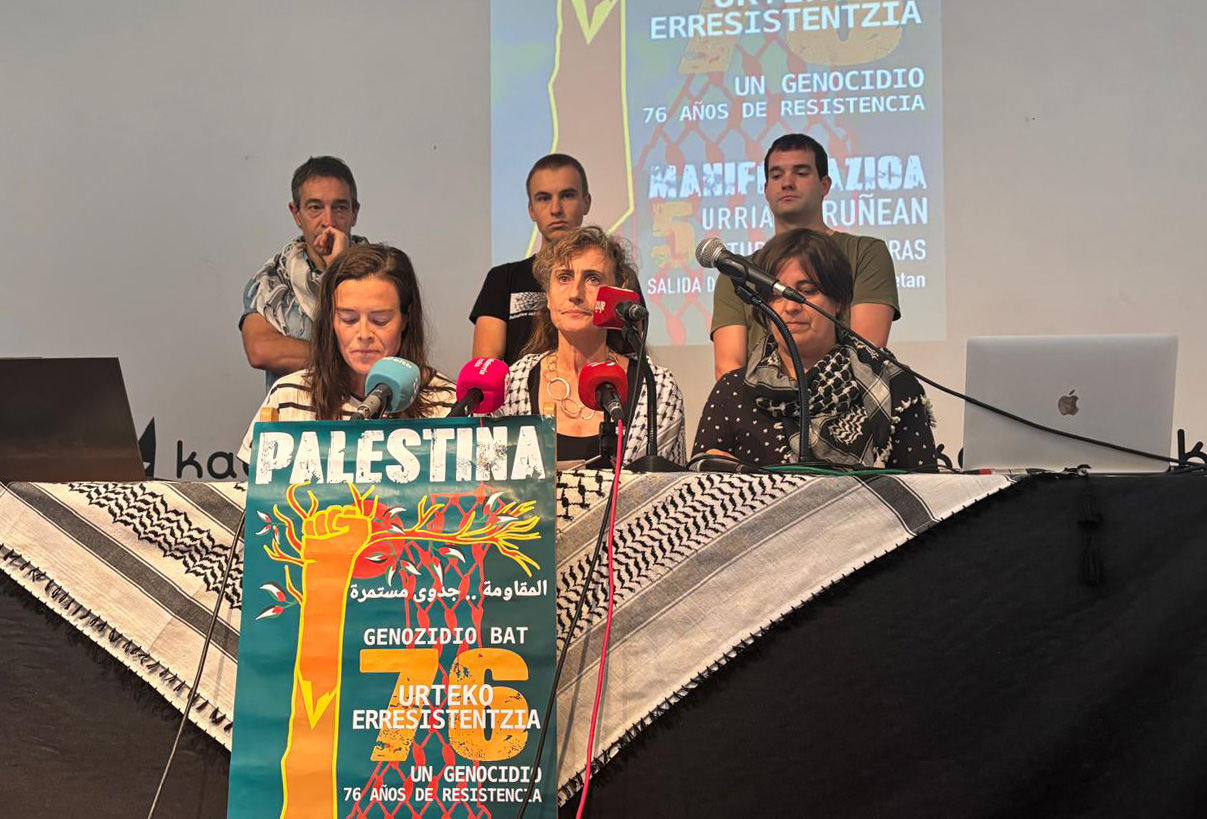"Many peoples have disappeared from the world and Basque Country can also disappear"
- Pastor of the village of Arruazu, Sakana. He was arrested for belonging to Askapena and, after five years of harassment and suffering, the acquittal has just reached him and the other four activists prosecuted. We have talked about the contribution that political militancy, grazing and Euskera want to make to the world.
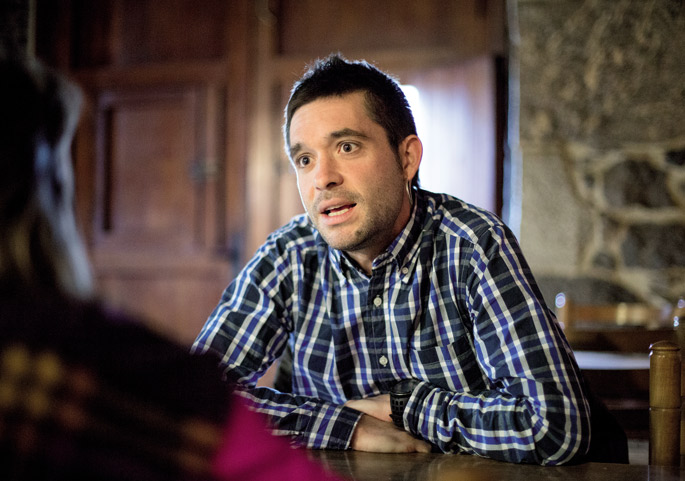
Since when pastor?
We started six or seven years ago. Arruazu is a small town that has lived from livestock and agriculture until recently. In many houses I had won and from a young age I had a utopian life. About twenty years ago, our uncle who died was the last pastor of the town. It was he who taught me the trade. I had it kept, and that's why a few years ago we put some sheep in a backyard, and little by little, we saw a cousin and a brother who had a chance to do something. I was in pastoralist school, and after a year in a Bidani farmhouse in Gipuzkoa, we formed a group of about 400 heads. It is a family project and everyone has helped us from the very beginning, with many doubts, but that of the pastor is a profession of very little prestige.
You also make cheese within the designation of origin Idiazabal.
Albi gaztes. between 5,000 and 6,000 kilos/year. Albi was the name of our pastor's uncle's cottage, up there in Aralar. We also pasted the sheep there. In Albín there's a dolmen, which we call Jentil Harria, and it's curious, there they found the traces of a pastor, with his tools. It's a dolmen from about 9,000 years ago, from the Neolithic. For thousands of years, there has been no time without pastors in Aralar. For us this is special, because we do not understand grazing as a profession, but as a contribution we can make to the people and to the future. Within biodiversity, human beings establish an intergenerational connection through their language and culture. So when we organize visits on our farm, we talk to people about the importance of language. For example, we explain to people that the word “compost” means “what benefits” or “reflect” is what sheep and cows do when they eat grass. Through language, the values and knowledge accumulated over thousands of years are transmitted, the visions necessary to keep the people alive.
Today all of this is considered reactionary, but we have to regain prestige in order for the human being to have a future.
Why did you come from town to town?
The mother was a nurse and the father was a palist in the deputation. We lived in Pamplona on a working day, but always wanting to go to the town. I felt out of place in the city. I've never been good at my studies, or at least I haven't laid the foundation. In high school, I left the ikastola and walked three years here. First at the Iturrama Institute and then at the Ermitagaña Institute, I learned at night and in Spanish. So I started working with an uncle in the kitchen. I spent some time in Leitza and then came to Arruazu.
Roncal's mother's family?
Isaba and Uztárroz. The mother's grandparents were from Roncal's last Basques. The great-grandfather, a UGT native, was arrested at the time of the war and was in jail on Mount Ezkaba. There the old Euskera was lost, but here in Arruazu the atmosphere is very Euskaldun, in the family and in the people.
How did you start working on popular movements?
I've devoted an important part of my life to militancy. My way of understanding militancy is to think about what I can offer to humanity as I live. I've been in the youth movement. At ikastola San Fermin, for example, at 14 years old, we formed a platform to represent the different lines of work and struggle that were developing in popular movements in Euskal Herria: the input, the movement in favor of political prisoners and amnesty, the feminist struggle…
Then I started militating in the Ikasle Abertzaleak group, in the Donibane Gazte Asanblada, in the youth group of Arruazu in the initiatives in favor of the Basque area, in the radio of noises of the neighborhood of San Juan we made a program about the prisoners and recovered the carnivals of the neighborhood… It was a very nice time.
And then you started in Askapena?
I jumped to Askapena because I wanted to meet other fights. The uprising of the Zapatistas was perfect and saw a great connection between the uprising of the Indians and ours. My sister made a brigade in Chiapas, and the next year it was me. Perplexed, I realized that the cause of all the struggles of the world is the lack of freedom. At the root of all movements we find that the identity and sovereignty of oneself has not been developed.
Fourteen years, one year ago, we were in Mexico, Guatemala, Cuba, El Salvador and Nicaragua experiencing different forms of struggle. We learned a lot, for example, in Guatemala the struggle was to reclaim land, and in Cuba they talked about the agricultural model. There I knew the principle of agroecology. Cities and towns were organised around agriculture, with the aim of feeding all citizens sustainably.
.jpg)
Condemned to resistance in a globalised and capitalist world?
The conflict between classes is continuous and in this clash the human being has taken significant steps in the process of empowering the humble person. The struggles of blacks, for example, their achievements in the field of civil and political rights are impressive, but the sufferings and struggles behind them are also terrible.
Another important thing I've learned in these years is that there have never been achievements without struggle. Changes do not happen on their own. We have to bring them back. If we don't move, they won't come. And along that road, we're sure to lose it many times. The enemy, that is, the one who has objectives contrary to my interests and develops a strategy to achieve them, often triumphs.
We also need to learn how to make a proper reading of our achievements so that we can continue to have victories. Many peoples have disappeared from the world and Basque Country can also disappear. We don't realize that. This reality, with its language and its people, can disappear. People will continue, but this reality may disappear. If it has not disappeared, it has been because of the resistance of several people. Euskal Herria is an achievement. Another one in the colors of the world, and if we don't defend it, nobody will.
Grazing, resistance pathway.
Grazing is the way of life that allows me to develop the utopian part. It is a way of moving forward as a people and, on the other hand, of working freely as a person and as a worker. From there, I make another more general reflection: In Arruazu, like grazing, you can recover some things that we take for granted and turn them into assets for the future, like language. The Basque Country is not lost, but it is clear that it is at permanent risk of loss. We are very few speakers and we are also being persecuted. Some people think that we should already be missing, while others think that we can offer something to the world from the point of view of language. After all, the Basque is not Basque, but of the world.
It says that grazing is an attempt to organize your life, with all the contradictions generated by the system in which we live. What are these contradictions?
A lot. Our company, for example, is a company that lives from sales under the laws of economics and market. We must look at production from an industrial point of view, but what is the priority? What does our environment need to produce what our environment needs or what it needs to push our business forward? We have these contradictions and we must recognise them, but not accept them.
Have you been a victim of the “Everything is ETA” theory as a Askapena militant?
This invention comes from an old logic. The enemy always creates ghosts with what hurts it. Ghosts, not groups, are transformative ideas or opportunities. The problem comes when its hegemony is questioned. The idea of “Everything is ETA” should be understood in an international context: Following the clash between the capitalist system representing the United States and the Soviet Union, we have moved into the world of one pole. The clashes now arise from the tensions that exist in the capitalist system and from the desire to achieve hegemony. The imperialist vision that drives the capitalist system always brings oppression and the new spectrum is generated in fields fertilized by oppression: terrorism.
Then, in its environment, the whole legal, legal and administrative structure is configured to control the ghost. This is used, for example, to dismantle revolutionary and critical political projects in the Basque Country. They want to nullify the projects in their entirety, not just the groups. In the case of ETA, ETA will be torn apart not when it stops doing armed actions, but when its project disappears, and that is what we are seeing today. Before, you could not speak until you had left the guns. They have now turned around again and that is no longer enough. The State says that as long as ETA exists it represents the totalitarian project. In addition, this discourse is based on repressive acts, harassment and fear.
Behind that “everything is ETA” it is clear that there is a political strategy, and we have not been able to make a critical political reflection. Some thought that once ETA disappeared it would be easier to reflect because the real problem was ETA, as the state said. But the reality is very different. In recent years a large number of people have been arrested for Twitter tweets. We have seen how a critical movement at state level such as the M15 has been immediately linked to ETA.
I think in Euskal Herria, and in most of the Abertzale left, some are thinking in a stagnant way, that all the things that are happening now are a consequence of the political-military conflict of yesteryear, and that's not the case. There are new laws, like the Mordaza Law, and there are new interpretations of laws, and there will always be. Repression is going to continue and from now on we have to think about how to make resistance.
How was his arrest?
I wasn't tortured, but it was very hard for me and the others. They entered forcefully and our children (then he was two years old), at night he is still afraid. He was charged against the family and the friends who were at the door of the house and made me see that. I was threatened from the very beginning, without stopping. At first, I was afraid I would get stuck.
You had to pay a deposit of EUR 60,000.
My first reaction was not to sign, because we didn't have that much money in the whole family. It's been very hard. The house, the current accounts, the cars, the savings of all those around us… everything has been seized, and also in times of crisis. As torture, everything is designed to condition your steps. Each of you can make your own decisions, but it has to do with the consequences that it has on the people around you.
Do you want to keep fighting?
Yes, always, but you have to see where. I am a shepherd, I have sheep and in food sovereignty there is a terrible struggle to do it. I believe in agro-ecological principles, in active trade unionism, I am a member of EHNE and of Bizilur and there I have a lot of work to go into, but I am a parsley of many sauces.
“Bost urte latz eta oso luzeak izan dira. Poliziaren etengabeko jazarpena pairatu dugu, baina, bestalde, harrigarriak izan dira aurkitu ditugun jarrerak. Zenbait sektore politikotan eta zenbait pertsonarekin sorpresak izan ditugu. Erakutsi dugu konfrontazioaren diskurtsoarekin kalera atera gaitezkela, desobedientzia aldarrikatuz kolore laranjarekin, ‘Libre’ leloarekin. Aldi berean, parlamentura joan gara Podemos edo Izquierda-Ezkerrarekin gure egoeraz hitz egitera, eta berdin Katalunian, Madrilen, Irlandan, Bruselan, Italian… Jende askorekin solas egin eta ikusi dugu ados daudela eskubide sozial eta politikoen defentsan. Jarrera horiek astindu behar ditugu, behartu. Kaleko jendeak presionatu behar ditu politikariak horren alde ager daitezen publikoki eta beldurrik gabe”.
Hainbat eragilek deituta, NATOren aurkako elkarretaratzea egin da Iruñeko Udaletxearen aurrean. Izan ere, gaur, martxoak 12, 39 urte bete dira Hego Euskal Herriak, Espainiar Estatua NATOn sartzeko erreferendumari ezezkoa eman ziola. Askapenako kide batek adierazi du, gaurko... [+]
Karmela espazio autogestionastuan egingo ditu, eta Euskal Herriko zein nazioarteko gonbidatuak egongo dira bertan. "Koiuntura analisi orokorretik abiatu eta Euskal Herriko borroka internazionalistaren gakoetarainoko bidea" egingo dutela adierazi du Askapenak... [+]
A ghost crosses the kitchens: The ghosts of Carlos.
Karlos has not been presented to the Master Chef Celebrity. After analyzing its culinary heritage, it is very clear that it will not overcome the selection of its opponents. In fact, the Academy of Gastronomy and the media... [+]
I have recently had the opportunity to see the latest work by Pierre Carles, a committed documentary author. Under the name of Guérilla des FARC, l'avenir a une histoire (FARC guerrilla, the future has history), proposes a renewed account of the armed conflict that has lasted... [+]
Palestinarekin Elkartasunak "sionistekin harreman oro etetera" deitu du. Kanpaina bat jarri dute abian Euskal Herriak Israelgo estatu terroristaren bizirautea bermatzen duten harreman militar, diplomatiko eta kulturalak seinalatu eta hauen etetea exijitzeko. Pasa den... [+]
Palestina, mediatikoki aurkeztua ez den bezala, aipatu zen joan den larunbatean Makean, mintzaldi, tailer, merkatu eta kontzertuen bidez.
The current situation requires a thorough analysis of what is behind titles, demonstrations, the manipulated dissemination of some facts, the dark concealment of others and the disguised propaganda of analysis in most mainstream media. The situation requires that superficial... [+]









